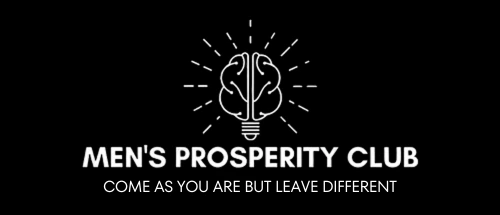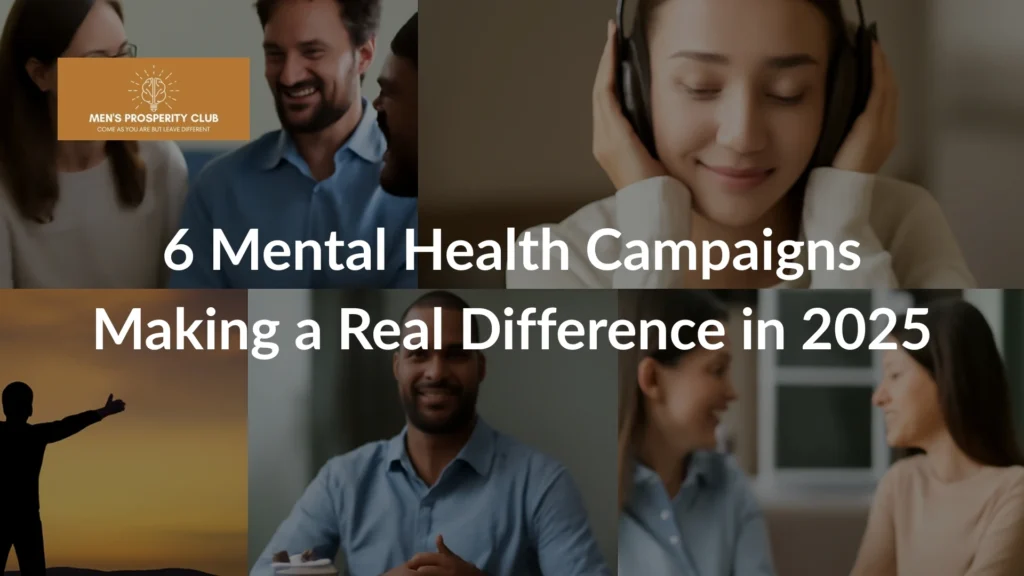Mental health is finally taking centre stage across the globe. With over 205 million people living with mental health conditions worldwide, awareness and support have never been more crucial. Mental health campaigns play a vital role in educating the public, breaking stigma, and encouraging positive conversations about mental wellbeing.
In 2025, we are witnessing some truly impactful mental health campaigns that are changing lives and communities. These initiatives go beyond just raising awareness—they offer practical tools, emotional support, and a sense of connection. Today, we explore six mental health campaigns that leaders and advocates believe are making a genuine difference.
What Makes These Mental Health Campaigns Stand Out?
Not all mental health campaigns are created equal. The most effective ones share a few key characteristics:
- Authenticity: They connect on a personal level and reflect real experiences.
- Data-driven messaging: They rely on solid research and current mental health trends.
- Clear calls to action: They guide people towards helpful resources or simple behavioural changes.
When these elements come together, campaigns become more relatable and actionable, motivating people to engage and make positive changes in their own lives.
1. Spotify: Take a Beat – Music as Mental Health Therapy
Spotify’s Take a Beat campaign champions the power of music as a tool for mental wellness. Music therapy is scientifically proven to reduce anxiety, uplift mood, and calm restless minds.
This campaign encourages users to pause and take mindful moments, using curated playlists designed to soothe or energise. In today’s busy world, these small breaks remind us to reconnect with ourselves and manage stress more effectively.
By weaving music into daily routines, Spotify’s campaign is making mental health support accessible and enjoyable—a perfect example of how mental health campaigns can fit seamlessly into everyday life.
2. ASICS: The Desk Break – Moving for Mental Clarity
ASICS launched the Desk Break campaign to highlight the link between physical movement and mental wellbeing. The campaign promotes short, intentional breaks from desk work to refresh the mind and body.
Featuring actor Brian Cox, the ad delivers a simple but powerful message: just 15 minutes of movement can reverse the negative effects of prolonged sitting, boost mood, and improve focus.
This campaign stands out because it targets the modern challenge of sedentary work life and offers a practical solution, making it a successful mental health campaign for working professionals.
3. Maybelline: Brave Together – Breaking the Silence on Youth Anxiety
Maybelline’s Brave Together campaign tackles anxiety and depression in young people. Partnering with the charity Ditch the Label, it fosters a supportive community and offers resources for those struggling with mental health issues.
The campaign’s powerful video follows a young woman overwhelmed by social media pressures—a reality many face today. Highlighting the emotional toll of constant comparison, it encourages young people to seek help and speak openly.
This campaign is one of the most relatable campaigns about mental health, especially for Gen Z, addressing stigma head-on with compassion and hope.
4. CALM: 30 Seconds of Silence – Mindfulness in Chaos
During a tense election night, meditation app CALM ran an innovative campaign called 30 Seconds of Silence. On major TV networks, they bought ad space to deliver just silence—a rare and precious pause.
This unexpected moment of quiet helped viewers find calm amid political stress and anxiety. The campaign was praised for its simplicity, timeliness, and deep emotional impact.
CALM’s campaign is a perfect example of how campaigns on mental health can creatively use media to provide relief and mindfulness, even in brief moments.
5. WWF: Prescription for Nature – Healing Through the Outdoors
WWF’s Prescription for Nature campaign reminds us that nature is not just a place to visit but a crucial part of mental health care. Framed as a doctor’s prescription, it encourages spending time outdoors to reduce stress and anxiety.
The ad shows a GP prescribing time in nature instead of medication, underscoring the scientifically backed benefits of green spaces for mental wellbeing.
This campaign beautifully blends environmental advocacy with mental health, showing how campaigns mental health advocates can broaden their reach by linking wellness with nature conservation.
6. McDonald’s: The Meal – Highlighting Childhood Mental Health
To mark Mental Health Awareness Week, McDonald’s UK ran The Meal campaign, which removed smiles from millions of Happy Meal boxes to raise awareness about children’s mental health.
The campaign includes a heartfelt ad featuring a child expressing sadness, encouraging parents and communities to talk openly about mental health with children.
This initiative is a standout mental health campaign focused on early awareness, showing the importance of normalising emotional conversations from a young age.
Linking Men’s Issues and Mental Health: The Role of Men’s Prosperity Club
Men’s mental health deserves special focus. Cultural pressures to “be strong” often prevent men from expressing vulnerability or seeking help. Sadly, this leads to higher rates of depression, anxiety and suicide among men.
This is why campaigns about mental health must include gender-specific support and outreach. Communties like the Men’s Prosperity Club provide safe spaces for men to discuss mental wellbeing alongside personal growth.
The Club empowers men to prioritise emotional health without shame, helping break stigma through community and education. Their holistic approach inspires many campaigns mental health advocates to adopt more inclusive strategies.
If you or someone you know struggles with mental health, exploring supportive communities like Men’s Prosperity Club can be life-changing.
Why These Mental Health Campaigns Are Making a Difference
What makes these mental health campaigns particularly successful? Here are three reasons:
1. They Feel Real and Relatable
They share genuine stories and situations audiences recognise. This builds trust and emotional connection, motivating engagement.
2. They Are Backed by Data
Using current mental health research and trends ensures messages are relevant and resonate with specific audiences.
3. They Offer Clear Steps
Effective campaigns don’t just inform—they encourage action, offering simple tools people can use immediately.
How You Can Inspire Change With Mental Health Campaigns
You don’t need a big brand budget to create meaningful mental health campaigns. Individuals, small groups, and businesses can make a big impact by:
- Sharing honest stories
- Highlighting data and facts
- Providing practical advice or resources
Authentic, simple campaigns can foster community support and break stigma wherever you are.
The Rising Importance of Mental Health Campaigns in 2025
Mental health is no longer sidelined. Expectations for brands, organisations and communities to support mental wellbeing are higher than ever. Nearly half of Gen Z want companies to act responsibly on mental health issues.
This demand fuels innovation and dedication in mental health campaigns worldwide, making 2025 a pivotal year for this cause.
Final Thoughts
Mental health campaigns are vital for shifting public perception and encouraging support. The six campaigns featured show that with authenticity, data, and action, we can make mental health a priority.
From music and movement to mindfulness and nature, these initiatives offer real tools for wellbeing. Focused attention on men’s mental health, through groups like Men’s Prosperity Club, shows the power of inclusive, targeted support.
We all have a role to play. Whether by supporting campaigns, sharing stories or creating our own initiatives, we can help build a kinder, healthier future.
Let’s continue to champion mental health with compassion, creativity and courage. Together, we can make a difference.




